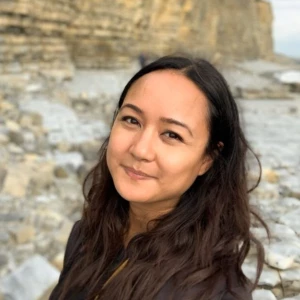Have you ever had a candidate come back from this kind of set-back very well? Can a candidate get stuck and still demonstrate the required skills to pass through to the next round?
What's the best way to move on from getting stuck in a case interview?


Hi Kay,
During the case interview several dimensions are evaluated.
It happens that a candidates get stuck on a specific topic and yet perform very well on other dimensionss. In that case this can work out.
In addition keep in mind that the level of expectation is higher as you progress in the rounds. So this has better chance to work out on 1st round than on 2nd. However there might a special note on your folder for the next interviewer to specifically check one particular dimension
To be completely clear, let me give you a few examples of situations wehre candidate did not perform 100% welle but could work as well ;
- Situation 1 : candidate stuck at brainstorming, but perfomed well in case resolution and structuring of the initial issue
- Situation 2 : candidate stuck at calculation, but performed well in reasoning and case progression and generating insights.
Hope this helps
best
Benjamin

Hi,
When you get stuck there are 2 options:
- You ask further questions
- You make a new structure to drill down further
1) You ask further questions. There are 4 types of questions that you can ask. Basically you can never get stuck if you ask one of these questions:
- You can ask for a historical data
- You ask for the comparable data of the competitors / internal benchmarks
- You can ask for a further segmentation
- You ask to describe the process behind the particular number
The 4th question is probably the most important if you get stuck. For example, if you know that the sales department is not performing you can ask the interviewer: "Could you please tell a bit more about existing sales process?"
2) You ask for 30 seconds and build a new structure. The most common feedback on the interviews is "You are not structured enough". To avoid this you should always be structuring. These structures can be both fully MESE issue trees or frameworks or a combination of both.
For example, if you find that we spend more time on cleaning the job shop than the other division you go with the following:
- The frequency of cleaning * Time spent per one cleaning
- If we find that the frequency is the same, we structure it further into People, Process, Technology
Best!

Hey Kay,
Really good answers above (or below?). One important thing to add is that an interviewer evaluates your process more than anything else. He / she is not interested in the answer to the case (they know it already...) but in how you get there. If you get stuck, it's a great moment to display that you have the composure and attributes to get out of the pickle while keeping a professional attire. As such, an interview is a bit like show business - The show must go on!
A great correction or recovery from a case that has gone slightly south is often a great way for the interviewer to get insight in your process. Do well, and you'll be surprised by the results. After all, how good can you evaluate somebody's problem solving ability if during the case performance, they don't run into the slightest little problem themselves. In short - see those moments of friction as an opportunity to display how you deal with challenges in real time!












